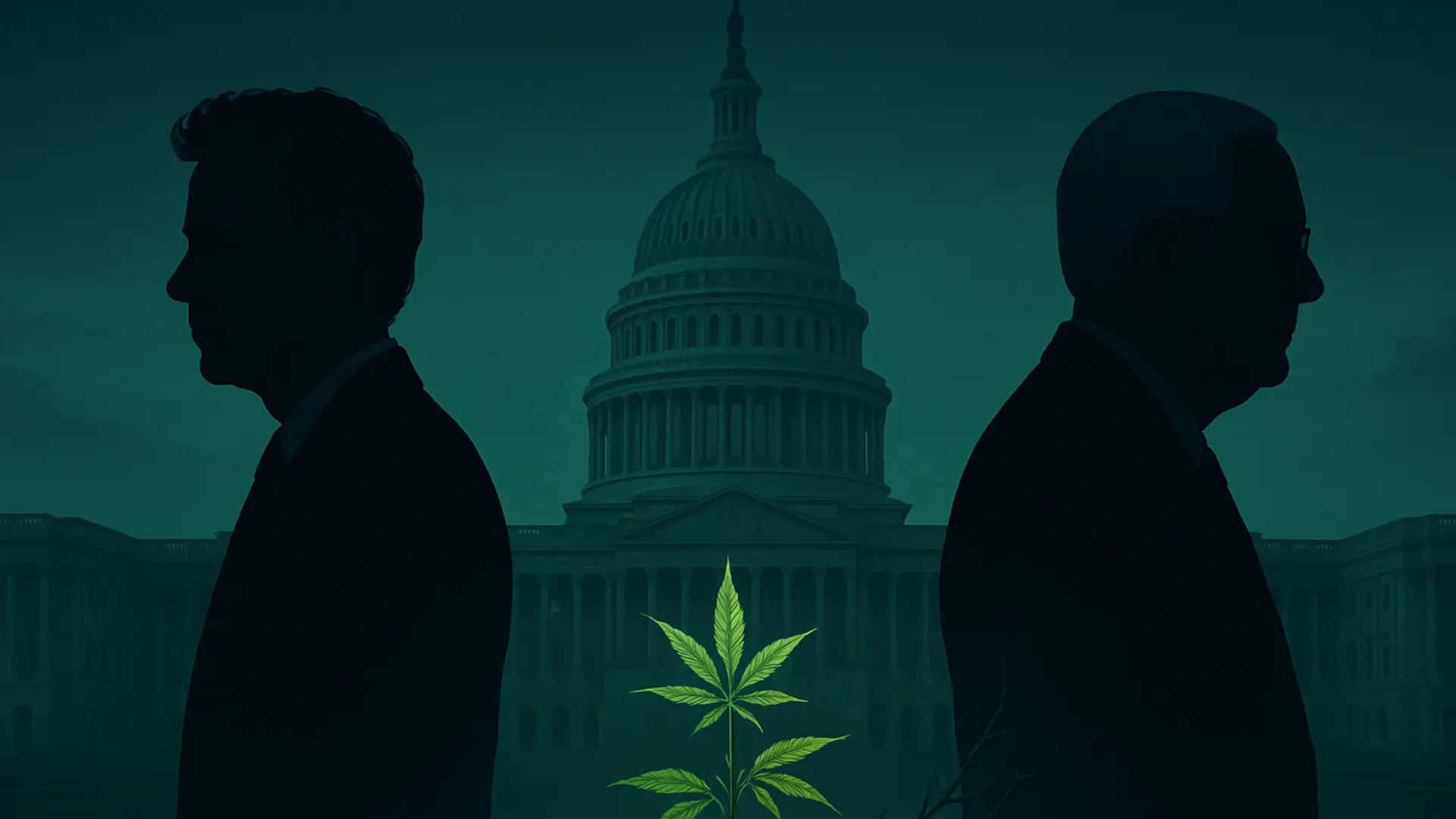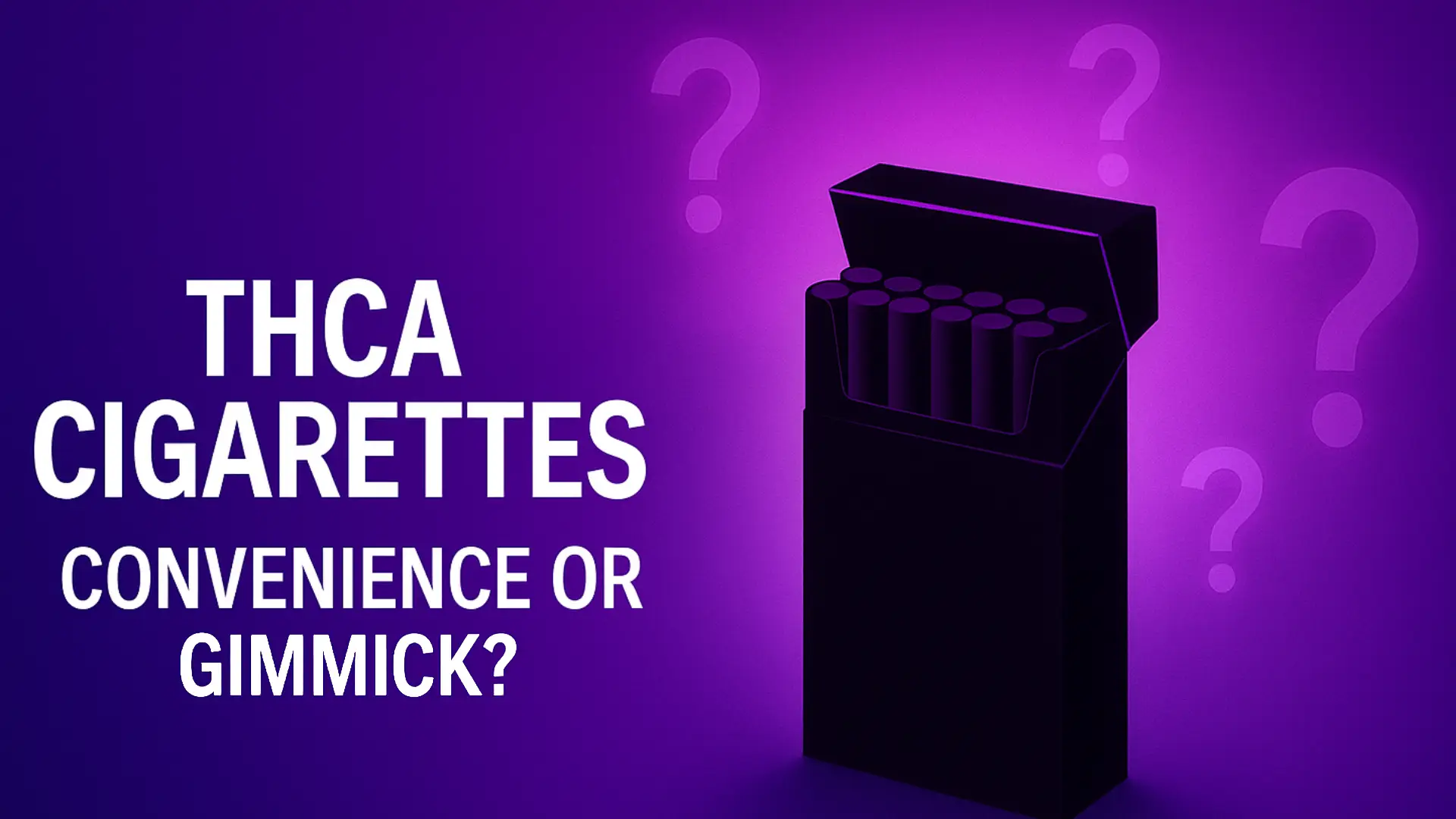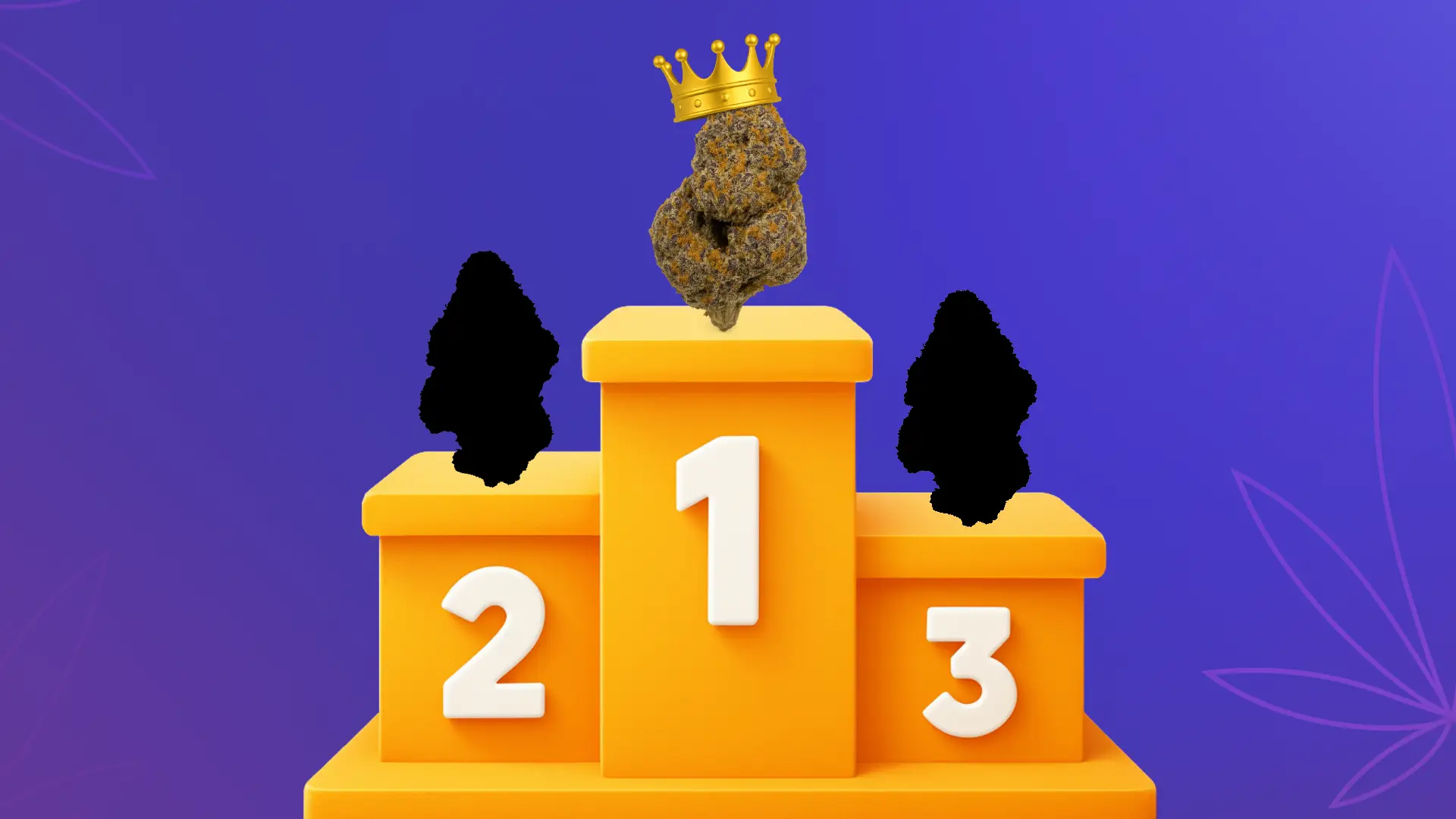The short version: Congress just tied a massive hemp crackdown to the bill that ended the government shutdown, and that puts almost everything BakeBoxx does at risk over the next year. Below is what that actually means, how it could hit our payment processing and day-to-day operations, and why we’re going all-in on building the BakeBoxx community while we still can.
What just happened in D.C. (in normal-people language)
To reopen the government, Congress passed a huge spending bill that includes the Agriculture-FDA budget. Buried inside that bill is new language that re-criminalizes most intoxicating hemp products nationwide very products that the 2018 Farm Bill quietly allowed to explode into a multi-billion dollar industry.
Key outlets and advocacy groups are saying things like:
-
The U.S. hemp industry is about $28–28.4 billion, and this bill could wipe out 95% of it.
-
Advocacy orgs estimate more than 300,000 American jobs are tied to hemp and hemp-derived products.
-
President Trump has now signed the shutdown deal, which starts a one-year countdown to effectively re-ban most hemp THC products.
This all happened without a standalone vote on hemp, tucked into a “must-pass” deal to stop the shutdown.
What the bill actually does to hemp products
Different articles explain the details differently, but they all line up on a few big changes:
-
Redefines hemp to count “total THC”, not just delta-9. That means THCa, delta-8, HHC, THCP, and other “similar effect” cannabinoids all get pulled into the same bucket.
-
Bans synthesized/converted cannabinoids, like delta-8, made from CBD, which is how a huge chunk of the market works today.
-
Caps finished hemp products at 0.4 milligrams of total THC per container.
Not per gummy. Per bottle, per bag, per vape, per entire package.
Put bluntly: under this law, almost every THCA flower, delta-8, delta-10, and “gets-you-high” hemp product becomes illegal at the federal level in about a year. Even a lot of full-spectrum CBD products will be over that 0.4 mg per-container threshold.
Some reporting suggests this would wipe out over 80% of the industry’s revenue, because intoxicating hemp products are where most of the money is.
The Political Battle
Rand Paul: Calling Out the Hemp “Kill Switch”
No matter what you think about politics, it’s hard to ignore what Sen. Rand Paul (R-KY) has been saying about this bill.
Paul is basically the one person in the room shouting what the hemp industry has been feeling:
This isn’t “tighter regulation,” it’s a kill switch.
When the shutdown bill hit the Senate floor, Paul filed an amendment to strip out the hemp ban language entirely. He warned that the way the bill is written, especially the ultra-low THC limit and the ban on most intoxicating cannabinoids, would “eliminate 100% of the hemp products in our country,” calling it an effective ban, not a tweak.
He also pointed out that:
-
The new 0.4 mg-per-container limit would “eradicate the entire industry” and wipe out products people actually rely on, including CBD that happens to contain tiny amounts of THC.
-
The bill overrides state-level hemp frameworks, even in places like Kentucky that already passed stricter rules on hemp-derived beverages, making the federal rule harsher than what those states democratically agreed on.
Paul’s amendment failed in a 76–24 vote, but his stance matters because it lines up with exactly what brands like BakeBoxx are seeing on the ground:
This isn’t just about “gas station delta-8,” it’s about collapsing an entire supply chain, farmers, processors, wholesalers, shop owners, and platforms like us.
For BakeBoxx, Paul is basically voicing what we’d tell Congress if we had a mic:
-
Don’t nuke a $28B industry and 300k+ jobs overnight.
-
Don’t pretend this is a minor “safety fix” when it clearly targets 80–95% of real-world hemp sales.
We don’t know whether Paul and the industry can claw back changes during the one-year window, but his opposition is one of the few cracks in the wall that gives us any hope this may still be softened or reworked.
Mitch McConnell: The Switch Up
The wildest part of this story is that Sen. Mitch McConnell (R-KY) is at the center of both chapters:
-
In 2018, he was the guy who pushed hemp into the Farm Bill and helped legalize it nationwide. He literally branded himself with #HempFarmBill and sold it as a lifeline for Kentucky farmers.
-
In 2025, he’s now one of the main architects of the crackdown that could wipe out most of that same industry.
Reports from Axios, Forbes, and local Kentucky outlets all say the same thing: McConnell has become a leading proponent of “closing the hemp THC loophole” the exact loophole that allowed THCA flower, delta-8, and other hemp-derived intoxicants to explode under the 2018 rules.
From his side, the argument is:
-
The hemp market is now full of “unregulated intoxicants” being sold in gas stations, vape shops, and online, often in packaging that appeals to kids.
-
The federal government needs to step in, slam the door on intoxicating hemp, and leave hemp only for industrial uses (fiber, grain, seed, research) and maybe very strict CBD.
He and allies pushed to insert this language into the must-pass shutdown bill, knowing it would be incredibly hard to remove once it was tied to reopening the government.
For farmers and brands, especially in Kentucky, that’s a gut punch. Local coverage is already calling the crackdown a potential “death sentence” for Kentucky hemp farms, which leaned hard into cannabinoids after the 2018 Farm Bill.
For BakeBoxx, the McConnell piece of this matters because it shows:
-
This isn’t a fluke or a misunderstanding. This crackdown is deliberate, driven by people who once championed hemp but now see intoxicating hemp as a political and public-safety liability.
-
The old “we’re covered by the Farm Bill” comfort blanket is gone. The person who wrote that sheet is now helping burn it.
It’s a reminder that federal protection is never permanent and that’s exactly why we’re taking this moment so seriously, tightening up, building our community, and planning for pivots instead of pretending everything will just go back to 2019 rules.
How big is the hemp economy we’re talking about?
This isn’t some tiny niche that only exists online.
-
The U.S. hemp market is estimated at around $28+ billion.
-
Industry groups estimate 300,000+ jobs tied to hemp, from farmers to processors to brands, distributors, lab workers, designers, and retail staff.
-
In just one state, Minnesota, low-dose THC edibles and drinks alone are a $140 million retail segment, and that’s just one slice of the pie.
Now scale that across the country: farmers who switched to hemp after 2018, manufacturers who invested in equipment, small brands building their first real income, smoke shops that survive off these SKUs. This bill slams all of that, fast.
What this means for BakeBoxx specifically
We built BakeBoxx on the same 2018 Farm Bill framework everyone else did: federally legal hemp with less than 0.3% delta-9 THC by dry weight, plus compliant COAs and state-by-state rules.
This new law doesn’t just tweak that framework; it flips the table.
1. Card processors might bail out way before the one-year deadline
Even though the law gives roughly a year for the industry to “adjust,” payment processors don’t have to wait.
Historically, as soon as federal risk spikes:
-
Card processors and banks update their internal policies first, often more aggressively than the law requires.
-
They drop entire categories (like “hemp-derived THC” or “intoxicating hemp”), even before regulations are fully defined.
-
Once a category is labeled “too risky,” it becomes much harder to get approved again.
So, yes, there is a real chance that card processors pull off sites like ours well before the actual enforcement date. That would instantly hurt our site revenue, customers, and the entire operation we’ve been grinding to build.
We were honestly hoping to keep this ride going a lot longer. We’ve invested years into building a legit, tested, transparent hemp brand. The idea that a line hidden in a shutdown bill could take that away overnight is… wild.
2. THCA flower and edibles become ground zero
BakeBoxx lives in the same category that’s being targeted:
-
THCA flower that converts to THC when you smoke it.
-
Infused pre-rolls, heavy edibles, and similar products that clearly have more than 0.4 mg THC per package.
Under a “total THC” rule with a 0.4 mg cap, almost everything that gets you truly baked is on the chopping block.
We’ll need to watch the fine print, how enforcement actually rolls out, and what new guidance the FDA/USDA put out, but at face value, our core product lines are exactly what this law is aiming at.
3. CBD and “non-intoxicating” products might survive, but…
Some reporting suggests that non-intoxicating CBD products would remain legal, but a ton of popular CBD items could still be banned if they contain more than 0.4 mg total THC per container.
That means:
-
To stay in the game, brands may have to shift toward THC-free CBD isolate or ultra-low-THC formulations, which is a completely different product strategy.
-
Many of the full-spectrum “feel something” CBD products people love today would vanish or be reformulated into weaker versions.
There is a path where Congress tweaks the language over the next few weeks or months, maybe carving out a clearer lane for CBD, or raising that 0.4 mg cap, but we can’t bank on that. We can only adapt to what’s written now and be ready if it shifts.
What this could do to farmers and the broader economy
This isn’t just about gummies and online carts.
If 80–95% of current hemp products disappear, farmer demand collapses.
-
Hemp farmers in states like Kentucky and Minnesota are already warning that the ban would “wipe out” their economic lifeline, especially those who pivoted from traditional crops into hemp after 2018.
-
The U.S. Hemp Roundtable and others are warning that this could cost hundreds of thousands of jobs and over $1.5 billion in state tax revenue.
Instead of regulating and setting standards, this approach mostly just nukes the category and hands business to:
-
The illicit market
-
Some segments of the legal state cannabis
-
Foreign or underground supply that doesn’t care about testing or safety
That’s why you’re seeing such a weird coalition of people, libertarians, farmers, hemp brands, and some consumer advocates all calling this a disaster.
So what do we do now? Build the strongest community we’ve ever had.
We can’t pretend this isn’t serious. It is.
We also aren’t going to panic and ghost you.
Here’s the honest plan:
1. We’re going to double down on community while we still can
If card processors or platforms decide to pull the plug, the only thing that survives is the relationship between us and you.
So right now, our focus is to:
-
Grow our email list so we can still talk to you even if platforms or processors change the rules.
- Go crazy on THCA deals for Black Friday and Christmas.
-
Keep educating: about hemp, about the bill, about what’s actually happening, not just fearbait.
If you rock with BakeBoxx, now is the time to plug in, not drift away.
2. We’ll adapt our products if there’s a legal lane
Over the coming months, we’re going to be watching:
-
How regulators interpret “total THC”
-
Whether there are carve-outs or tweaks for CBD
-
What state-level rules do in response
If there’s an honest, compliant way to keep offering hemp products, whether that’s CBD-only options, ultra-low THC formulas, or something new, we’ll explore it. But we won’t lie to you: the version of the market we all know today is on a countdown.
3. We’re not giving legal advice, but we’re going to stay transparent
This article is not legal advice. Laws change, details shift, agencies add guidance. But we owe you transparency about where we stand.
As things develop, we’ll keep updating our community:
-
What we’re being told by processors
-
Any changes to what we can/can’t sell
-
How we’re pivoting so we can keep creating value in this space even if the rules force us to evolve it.
Could things still change?
Yes. Even with the bill signed:
-
There’s about a one-year window before the ban fully kicks in.
-
Lawmakers can introduce follow-up fixes or clarifications, especially if the blowback from farmers, small businesses, and consumers gets loud enough.
-
Courts or future Congresses can reshape this again.
Some advocates are specifically pushing for a world where:
-
Intoxicating hemp is regulated like cannabis, not erased.
-
CBD has clear, science-based rules that don’t accidentally ban therapeutic products because of microscopic THC content.
We can’t promise those changes will happen, but we also know nothing in drug policy stays still forever.
What we’re asking from you
If you’ve ever:
-
Ordered from BakeBoxx
-
Recommended us to a friend
-
Shared one of our posts
-
Or even just watched from the sidelines, thinking “I’ll try them eventually”
Now is the time to lock in with us.
Help us build the biggest, realest BakeBoxx community we’ve ever had.
So that:
-
If this industry really does go up in flames, we go out together, not quietly.
-
And if things change, if Congress tweaks the bill, if CBD gets a better lane, if the rules soften, we’re still here, with a strong community, ready to rebuild and pivot.
We started BakeBoxx to give people better options and to support real growers, manufacturers, and shop owners, not to be a footnote in some shutdown side-deal.
Whatever happens next, we want you with us for the last chapter of this era, and hopefully the first chapter of whatever comes after.
Follow our socials @Bake_Boxx r/Bakeboxx





